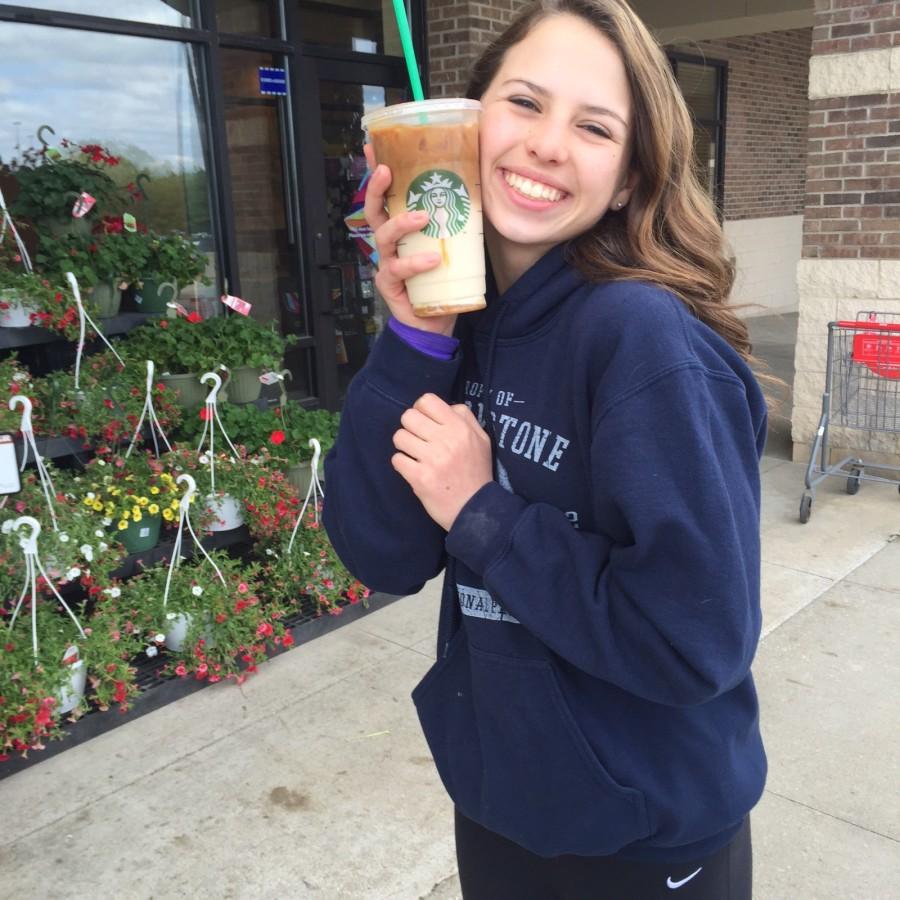The Caffeine Craze
Student like junior Nikki Schipperijn often turn to Starbucks to fill their caffeine cravings
It’s safe to say that, for the majority of students, fatigue accompanies the school-induced early wake-ups every Monday through Friday. Many students have simply trained themselves to accept the burnout and move through the day with a cloud of exhaustion hanging over their heads. Others, however, seeking to acquire a false sense of wakefulness, find themselves instinctively reaching for something they believe will effectively do the job: caffeine.
To many teens, reaching for a cup of coffee, tea, or another caffeinated drink may seem trivial, but the consequences of doing so are far less trifling than one would initially believe.
Caffeine, in fact, is actually categorized as a drug because its intended purpose is to increase energy and elevate mood; however, in higher doses, it can cause headaches, dizziness, and jitters, as well as induce abnormal sleeping patterns. As is true of most drugs, people who drink caffeine frequently often develop immunities against it, and thus require more to feel the intended effect.
Consuming caffeine in small quantities has little to no effect on the body. As doses increase, however, the results become all the more prominent. Ironically, dehydration is another potential outcome, regardless of whether or not it is consumed in the form of a beverage. Additionally, caffeine consumption can result in a loss of calcium in the body. According to Dr. Mary Swingle of North East Pediatrics in Rochester, this has the ability to lead to even more long term effects, such as decreased bone density and an increased probability of developing osteoporosis, a medical condition in which bones become increasingly brittle due to a lack of calcium, later in life.
The impending, detrimental outcomes of high caffeine consumption are lost upon many teens. They continue to claim they drink caffeine as a way to maintain alertness during the long days of the school week, arguing that without it, they would be unable to remain awake during classes.
“With school starting so early, I need multiple cups of coffee to stay awake. Sometimes even an energy drink or two,” said junior Shelby Smith. “There are some days when I forget my coffee at home, and then I’m falling asleep in second hour. I’ll be super tired in first hour, and then by the time I get to second hour I physically cannot keep my eyes open.”
Smith is not the only one with a caffeine dependence.
“If I drink it, I do so around 9 p.m.,” said junior Pauleana Stevanoski. “That way I can stay awake because I still have much more homework to do that late.”
Between school, work, sports, extracurriculars, and social lives, teenagers these days are taking to caffeine as the sole solution to help them function.
Yet, by drinking caffeine late at night in order to preserve attentiveness, the opposite effect is reached. Taking into account that caffeine affects sleeping patterns the most when it is consumed six hours or less before one goes to bed, it is evident that those who drink the most caffeine inevitably receive the least amount of sleep. This lack of sleep results in constant complaints of drowsiness in the daytime.
In modest amounts, caffeine is not necessarily a bad thing. Nonetheless, one should not develop a dependency upon it. It’s been said time and time again, and yet the phrase still proves relevant: everything in moderation.






